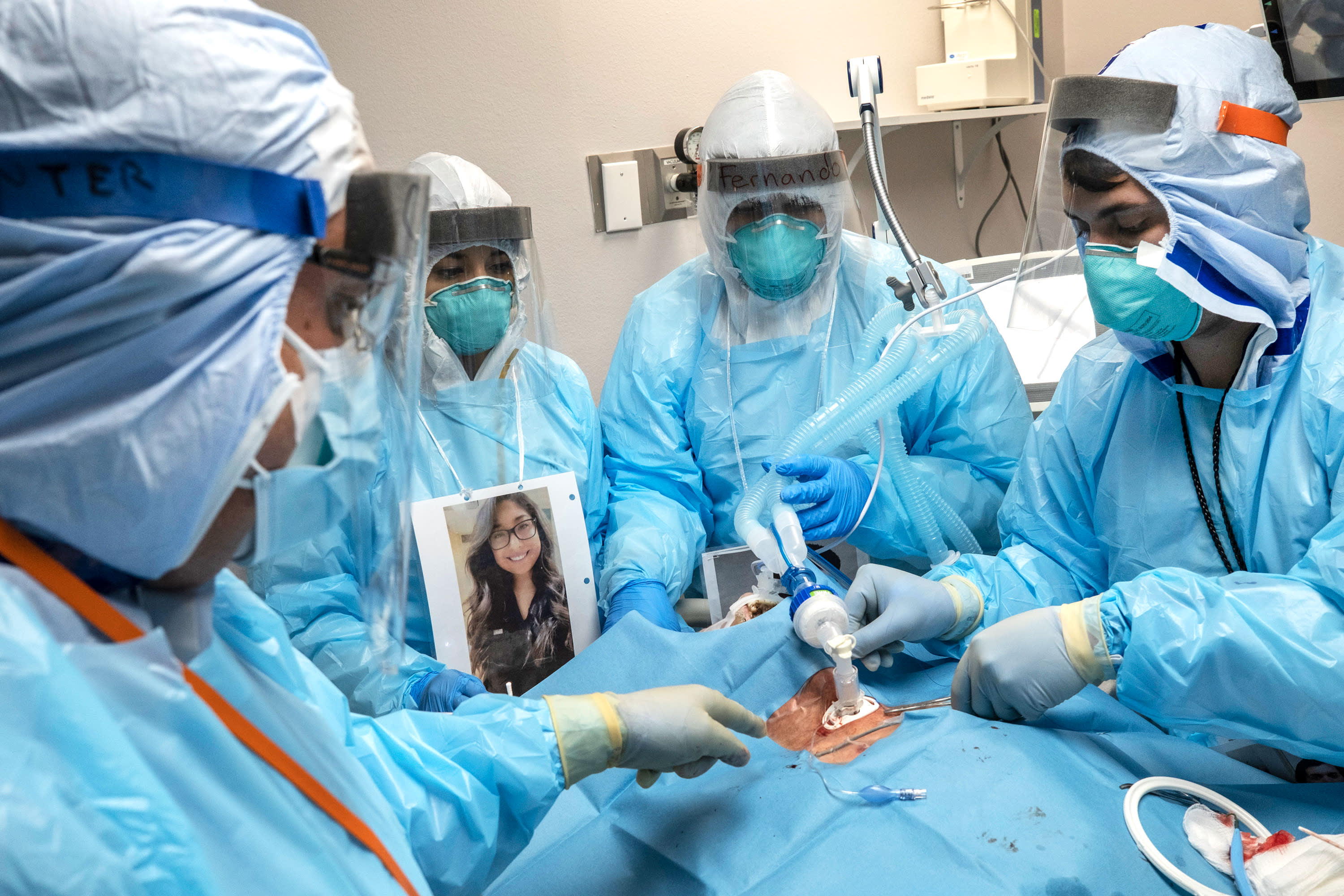The surge in COVID-19 patients at hospitals around the country is putting a tremendous strain on health care workers who’ve now been on the front lines for nine months.
A program that helps combat veterans deal with trauma is now being used to help doctors and nurses cope with the stress.
“I can’t express the heartache," said Maria Altamirano, a nurse at Antelope Valley Hospital in Lancaster.
Altamirano broke down in tears when asked about the stress that health care workers are feeling right now amid the latest surge in patients.
She is among 18 million health care workers who’ve been on the front lines all across the country for nine long months.
"Goggles and N95s. We can’t have a drink of water for hours. We’re so dehydrated. We are doing everything we can for our patients because we know they cannot see their families," she said.
Experts say many of our health care workers are experiencing the same kind of trauma that combat veterans have.
Vets with PTSD have been taking part in group therapy sessions like the one offered by nonprofit group Volunteers of America for years.
Now, Volunteers of America has expanded that program to help health care workers.
During the pandemic, the sessions are done online.
Raven Smith, a veteran from San Pedro who served two tours in Iraq, helps facilitate the therapy sessions for health care workers. She says their issues are surprising similar to traumatized vets.
“I would say that’s part of the similarities, experiencing moral injuries and traumas and thinking you are going through it alone, that you have nobody to talk to about it," Smith said.
For nurses like Altamirano, that kind of support can be crucial to help them get through this latest hospital surge. In the meantime, she’s pleading with the public to follow safety protocols to lessen the strain on health care workers.
I can’t express the heartache.
Maria Altamirano, a nurse at Antelope Valley Hospital in Lancaster
"We’re exhausted. And there will be no room to care for your family members if this continues," she said.
Since the online therapy program started in June, more than 300 health care workers from all over the country have taken part.
If you are a health care worker and you’d like some free support, you can sign up for a session through Volunteers of America here.




